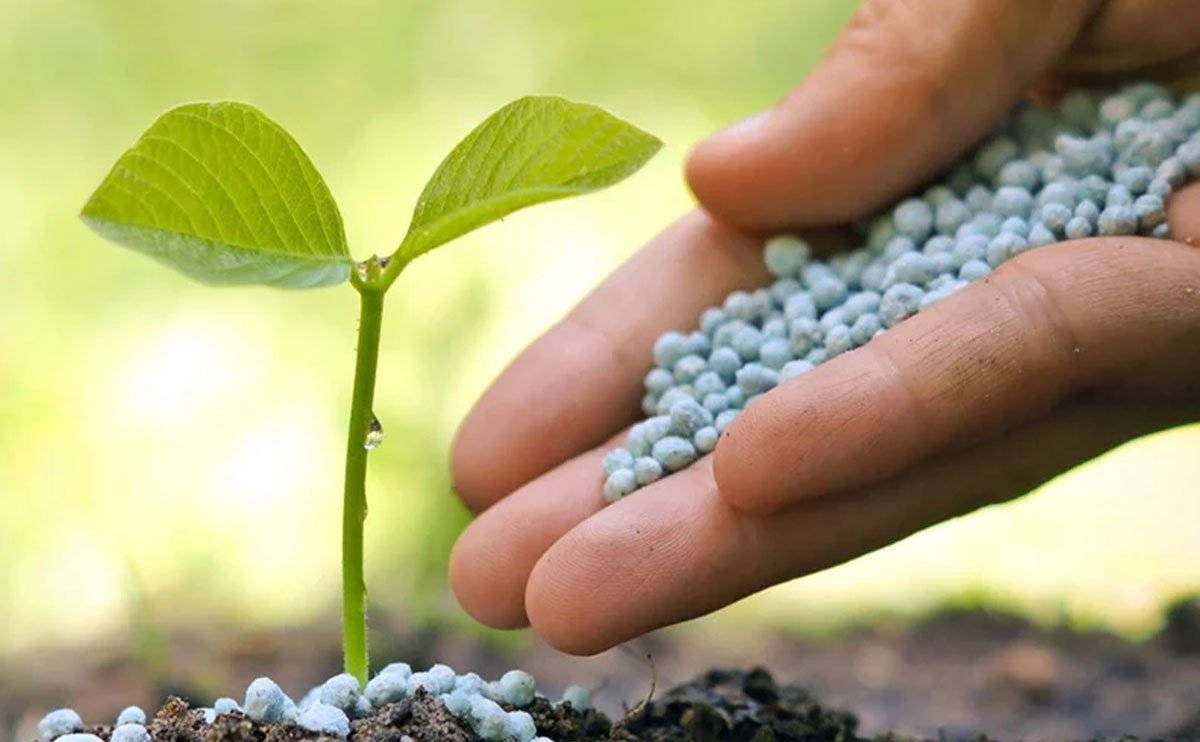Photo AI
Last Updated Sep 27, 2025
Fertilisers Simplified Revision Notes for GCSE Edexcel Chemistry
Revision notes with simplified explanations to understand Fertilisers quickly and effectively.
284+ students studying
Fertilisers
Essential Elements in Fertilisers
Plants need certain elements from the soil to grow properly. The three main essential elements found in fertilisers are:
- Nitrogen (N)
- Phosphorus (P)
- Potassium (K)
Why are these elements important?
If plants don't get enough of these elements, it affects their growth and life processes.
Fertilisers supply these essential elements when they are missing from the soil, or provide more to:
- Increase crop yield
- Produce bigger crops
- Promote faster growth

Ammonia in Fertilisers
- Ammonia (NH₃) is an important chemical used to produce nitrogen-containing compounds for fertilisers.
- Ammonia can undergo a series of reactions with oxygen and water to produce nitric acid.
- Ammonia can also react with acids, such as nitric acid or phosphoric acid, to produce ammonium salts, which are used in fertilisers.
Producing Ammonium Sulfate (Small Scale in the Lab)
Ammonium sulfate (NH₄)₂SO₄ is a nitrogen-rich fertiliser that can be made in a lab using ammonia and dilute sulfuric acid.
Equipment needed:
- Ammonia (alkali)
- Dilute sulfuric acid (acid)
- Methyl orange indicator
Method:
- Add methyl orange to the ammonia solution. The indicator will turn yellow in the alkaline solution.
- Slowly add dilute sulfuric acid from a burette into the ammonia solution, swirling the mixture. When the solution turns red, the ammonia has been fully neutralised, forming ammonium sulfate.
- The first solution contains the indicator, so it is not pure. Repeat the experiment using the exact volume of sulfuric acid needed to neutralise the ammonia, but without the indicator.
- To obtain solid ammonium sulfate crystals:
- Evaporate the solution using a steam bath until only a small volume remains.
- Leave the solution to crystallise.
- Filter the crystals and leave them to dry on a windowsill.
Raw Materials:
- Ammonia is produced via the Haber Process.
- Sulfuric acid is produced via the Contact Process. The industrial production of ammonium sulfate is much larger and more complex than the lab method.
Industrial Method:
- Ammonia gas is introduced into a large reaction chamber.
- Sulfuric acid is sprayed into the chamber.
- The ammonia reacts with sulfuric acid to produce ammonium sulfate powder.
Comparison Between Lab and Industrial Production:
- Rates of Reaction: The industrial process is designed for high efficiency and speed, while the lab method is slower and more controlled.
- Reversible Reactions and Equilibrium: The Haber Process and Contact Process involve reversible reactions that are influenced by factors such as temperature and pressure.
- Atom Economy and Yield: The industrial process aims for high atom economy (minimal waste) and maximises yield to ensure cost-efficiency.
- Availability of Raw Materials: On an industrial scale, large amounts of ammonia and sulfuric acid are required, while the lab method only needs small quantities.
- Energy Use: Industrial processes require more energy, especially for the high temperatures and pressures in the Haber and Contact processes.
500K+ Students Use These Powerful Tools to Master Fertilisers For their GCSE Exams.
Enhance your understanding with flashcards, quizzes, and exams—designed to help you grasp key concepts, reinforce learning, and master any topic with confidence!
20 flashcards
Flashcards on Fertilisers
Revise key concepts with interactive flashcards.
Try Chemistry Flashcards2 quizzes
Quizzes on Fertilisers
Test your knowledge with fun and engaging quizzes.
Try Chemistry Quizzes12 questions
Exam questions on Fertilisers
Boost your confidence with real exam questions.
Try Chemistry Questions3 exams created
Exam Builder on Fertilisers
Create custom exams across topics for better practice!
Try Chemistry exam builder78 papers
Past Papers on Fertilisers
Practice past papers to reinforce exam experience.
Try Chemistry Past PapersOther Revision Notes related to Fertilisers you should explore
Discover More Revision Notes Related to Fertilisers to Deepen Your Understanding and Improve Your Mastery
Load more notes